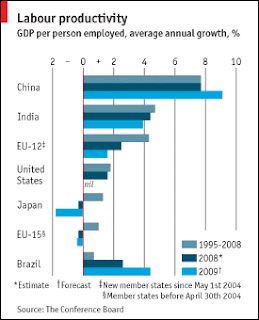THE UN-COMFORT ZONE with Robert Wilson The latest fad in motivation is the Law of Attraction or more popularly The Secret after the motion picture and book by Rhonda Byrne. The idea being that if you use the power of The Secret you will attract health, wealth and friends to you in abundance.
The Secret takes an old idea and repackages it for our today’s society. The core idea is that your thoughts control the world around you. If you have positive thoughts, good things come your way. If you have negative thoughts then bad things come your way. In other words, if you wish hard enough for the things you want -- you will get them. Simple. Or is it? If it were simple, then countless people throughout history would have figured it out over and over, and it would not be much of a secret. Perhaps it takes a little more effort than suggested – or perhaps it is just a pipe dream.
We, as modern educated people, need more proof. In order to make it palatable to the skeptic in us, The Secret adds an element of science. We are told that quantum physics has identified that all things at the sub-atomic level exist as both particles and as waves – constantly shifting between being solid matter and being pure energy. It is then proposed that our thoughts create brain waves which in turn influence the sub-atomic waves of the entire universe. The Secret claims that the more intent you are in your wish the faster the universe will act upon it. Is it real, or is it VooDoo.science?
If real, it sounds wonderful! Now, if I understand correctly, if I wish real hard I can become a concert pianist and play to a sold out audience in Carnegie Hall? I only see one hitch: I’ve never had a piano lesson in my life.
The Secret also presents the Law of Attraction as if it had been intentionally kept hidden for centuries. That it was suppressed and held by a few conspirators so that they could control all the wealth of the world. Unfortunately, that notion is nothing other than a marketing ploy to generate interest in the book. It also contradicts the concept of Law of Attraction. The idea that a select group of people have kept it away from the masses intentionally preys on the destructively negative emotion of envy.
To the contrary, people who have understood the Law of Attraction have made numerous attempts at sharing it with the world at large. The best example is Andrew Carnegie, who was one of the most successful so-called “Robber Barons” of the Industrial Age. Carnegie hired Napoleon Hill to research the most successful people in the world, how they got that way, and then record his findings in a book. The book is Think and Grow Rich and was published in 1937.
The best thing about Think and Grow Rich is that it takes the mysticism out of the Law of Attraction. So, for those of you who find wishing on a star a bit difficult to swallow as a method for acquiring wealth, here is the real secret:
Identify your goal. Make a written plan to acquire that goal. Work your plan persistently. Give it your time, attention and energy. The more time and effort you give, the quicker you will achieve it. Visualize it coming to fruition. Draw it, illustrate it, photograph it, then keep it in front of you. Revise your plan as your knowledge grows. Be open-minded to opportunities that arise that may deviate from your plan, but still move you toward your goal.
The world’s most successful people were extremely focused on achieving one goal. They focused to the exclusion of everything else including family, friends, lovers, recreation, entertainment, vacations and hobbies.
Next, tell everyone you know about your goal. Spread the word, so that people who can assist you are aware of your intentions. I truly believe that positive minded people attract more opportunities to themselves because they are so pleasant to deal with.
The formula is simple, but most of us compromise our goals because we want to enjoy a full balanced life. A life filled with friends, family and good times. We focus on our goals when time allows, and in turn, our goals take much longer to achieve. The true secret is staying focused on your goal.
Robert Evans Wilson, Jr. is a motivational speaker and humorist. He works with companies that want to be more competitive and with people who want to think like innovators. For more information on Robert's programs please visit www.jumpstartyourmeeting.com.



